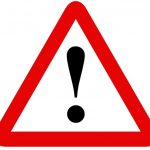Read Part I: What Do Food Facility Auditors Really Want?When I train my QA managers on how to start an audit, I teach them to always say something to this effect: “Thank you, Mr. Auditor for coming here today. We are proud of the work we have done on our quality system and are happy to show you our hard work. To be clear, we are using SQF Version 7.2 Level 2 as our standard for this audit. If you have any suggestions for improvement outside of that expectation, we would love to hear them. Sound fair?”
Who would not agree to that? It establishes the rules of the game and if the auditor steps out of bounds, it sets up an expected course of action on your part.
So, during the audit, if the auditor does step outside of the standard (and they usually do at some point), you can return easily and without confrontation to the scope of the audit.
If this happens, you can respond like this: “I hear what you are saying, Mr. Auditor. That is very interesting, but I am confused. I know the standard and the section you are referencing, but I cannot find where it addresses your requirement. Where in the standard do I find your point?”
If he cannot find it, it is a suggestion for your program to improve and not something that can be written up as a deviation. Tell him that you will consider it and that you appreciate the advice.
If the auditor still wants to include this in the audit as a deviation, you don’t have to accept that.
Don’t wait if this happens. Immediately call your contact at the audit company headquarters. Sit down with the auditor on speakerphone. Explain what you are discussing and have both sides state their case. Ask for clarification on what the auditor is proposing.
This is not confrontational; you are simply getting clarification from the authority. If is it is in the standard, you learned something. If not, the auditor did. You both win.
As a bonus, the auditor will think twice before writing up the next out of scope deviation. He knows what you do.







About the part “not accepting all deviations, especially if it is not scope of the Audit” is surely not to be discussed. If the discussion is handled as you describe, it is possible, that the auditor gets angry and is searching fiercely deviations which are within the scope – and he will find them…
I recommend strongly saving such discussions until the final meeting. Then is the time to stand for the wrongly set deviations.
Hi – thanks for your comment.
Auditors are people, and in most cases have a wealth of experience that extends beyond the scope of the audit. They want to be helpful, and that’s great. But if the audit program is to work, they need to stay in bounds. Protesting at the close out meeting is too late. The report is already written.
I have done this before in real world situations and it works. The Certification Body wants an audit that conforms to the standard. Auditor calibration is a constant challenge for them and they will back you up if you are in the right.
Now, you do need to pick your battles. Don’t push over something trivial. Save this tactic for what matters.
I hope this helps and thanks again for taking the time to comment!